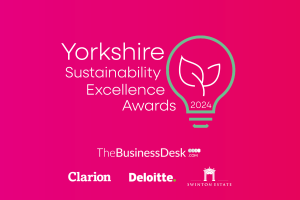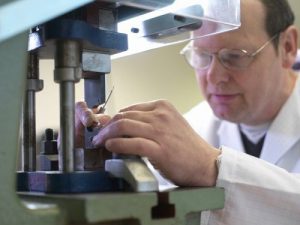Sharp fall in optimism as service sector ‘rocked by stormy waters of Brexit’

THE pace of business volumes growth in the business and professional service sector slowed, and remained stable in consumer services, in the three months to August but optimism fell sharply.
According to the CBI’s latest quarterly Service Sector Survey, business and professional services firms – which include accountancy, legal and marketing firms – reported that business volumes were unchanged on the quarter, after rising in May.
Meanwhile, consumer services companies, which include hotels, bars, restaurants, travel, leisure, saw further moderate growth in business volumes.
In the first quarterly Service Sector Survey since the UK’s decision to leave the European Union, optimism in both sub-sectors fell sharply.
In business and professional services, it fell at the fastest pace in nearly five years while in consumer services, it dropped at its fastest since the financial crisis (February 2009).
Business expansion plans in business and professional services were the weakest since May 2012.
Employment growth in both sub-sectors remained above average, and was at the strongest level this year in consumer services, but is expected to slow over the next quarter. Growth in spending on training and retraining also remained resilient.
Across the sector as a whole, investment plans for the year ahead were brought back into line with long-run averages, having seen a stronger start to 2016.
Business and professional services firms expect to maintain investment spending on land and buildings, while spending on vehicles, plant and machinery will be pruned back over the next year. In consumer services, investment in land and buildings will continue to grow, but at a slower pace, whilst expenditure in vehicles, plant & machinery will be flat on the year. IT expenditure will continue to see robust growth in the sub-sectors.
Anna Leach, CBI head of economic analysis and surveys, said: “Whilst the service sector has been rocked by the stormy waters of Brexit, especially when it comes to firms’ sense of optimism, the actual slowdown in growth on the office and shop floor has been relatively modest.
“It’s encouraging that employment numbers have remained robust, especially in the consumer services sector. But looking ahead, the service sector faces a challenging environment in which to grow and invest, with uncertainty about demand weighing on firms’ minds.
“To shore up confidence across the economy, the Government must clearly communicate plans for negotiations to leave the EU, and demonstrate its commitment to stimulating growth and driving investment with an ambitious Autumn Statement.”
Key findings:
Business and professional services
• The volume of business was broadly unchanged over the quarter (+2%), with 22% of firms reporting they were up compared with the previous quarter, and 20% saying they were down. Volumes are not expected to change significantly over the coming quarter (-1%, the lowest expectation since August 2012 -8%)
• Optimism about the business situation dropped (-30%), at its fastest since November 2011 (-33%), as 10% said they were more optimistic than three months ago, whilst 40% said they were less optimistic
• 39% of firms said they expected to expand their business, and 60% said they did not, giving a balance of -21%, the lowest since May 2012 (-26%)
• Businesses citing uncertainty about demand/sales as a factor limiting capital expenditure (66%) is at the highest since May 2013 (69%)
• 24% of firms said the overall profitability of business was up on the previous quarter, and 25% said it was down, giving a balance of -1%. This was roughly in line with the previous quarter (+2%)
• Average selling prices rose – following two successive quarters of price falls – with a balance of +4%. Prices are expected to be unchanged next quarter
• 23% of businesses said numbers employed were up on three months ago, and 8% said they were down, giving a balance of +15% (compared with +26% in May), which is above the long run average (+11%)
• Although investment intentions have weakened across the board, they have only been pulled back to their long-run averages. Firms intend to slightly cut investment in land and buildings (-3% vs LR average -6%) over the year ahead and in vehicles, plant and machinery (-7% vs LR average -6%). IT investment will continue to grow (+22% vs LR average +20%)
Consumer services
• 26% of firms reported a rise in business volumes, compared with 19% saying they were down in the last three months, giving a balance of +7%, similar to the balance seen in May (+9%). Growth is expected to strengthen slightly in the next three months (+10%)
• Optimism about the business situation fell sharply (-37% – the fastest decline since February 2009 (-53%)), as 15% of firms said they were more optimistic than three months ago, whilst 52% said they were less optimistic
• Profitability declined in August (-6%), but by less than in May (-9%)
• Investment plans for the year ahead have been scaled back across all three investment categories, but remain above long-run averages. Capital expenditure is expected to grow at a slower pace over the next 12 months in land and buildings (+8%, compared with +12% in May vs LR average -3%) and IT (+18%, compared with +38% in May vs LR average +11%). Investment spending in vehicles, plant & machinery is expected to be unchanged over the coming year relative to the previous year (0%, compared with 18% in May vs LR average -6%)
• Growth in numbers employed was the strongest seen in 2016 so far. 33% of businesses said numbers employed were up on three months ago, and 5% said they were down, giving a rounded balance of +29% (+23% in February, and +26% in May). Employment growth is expected to ease next quarter (+15%).






